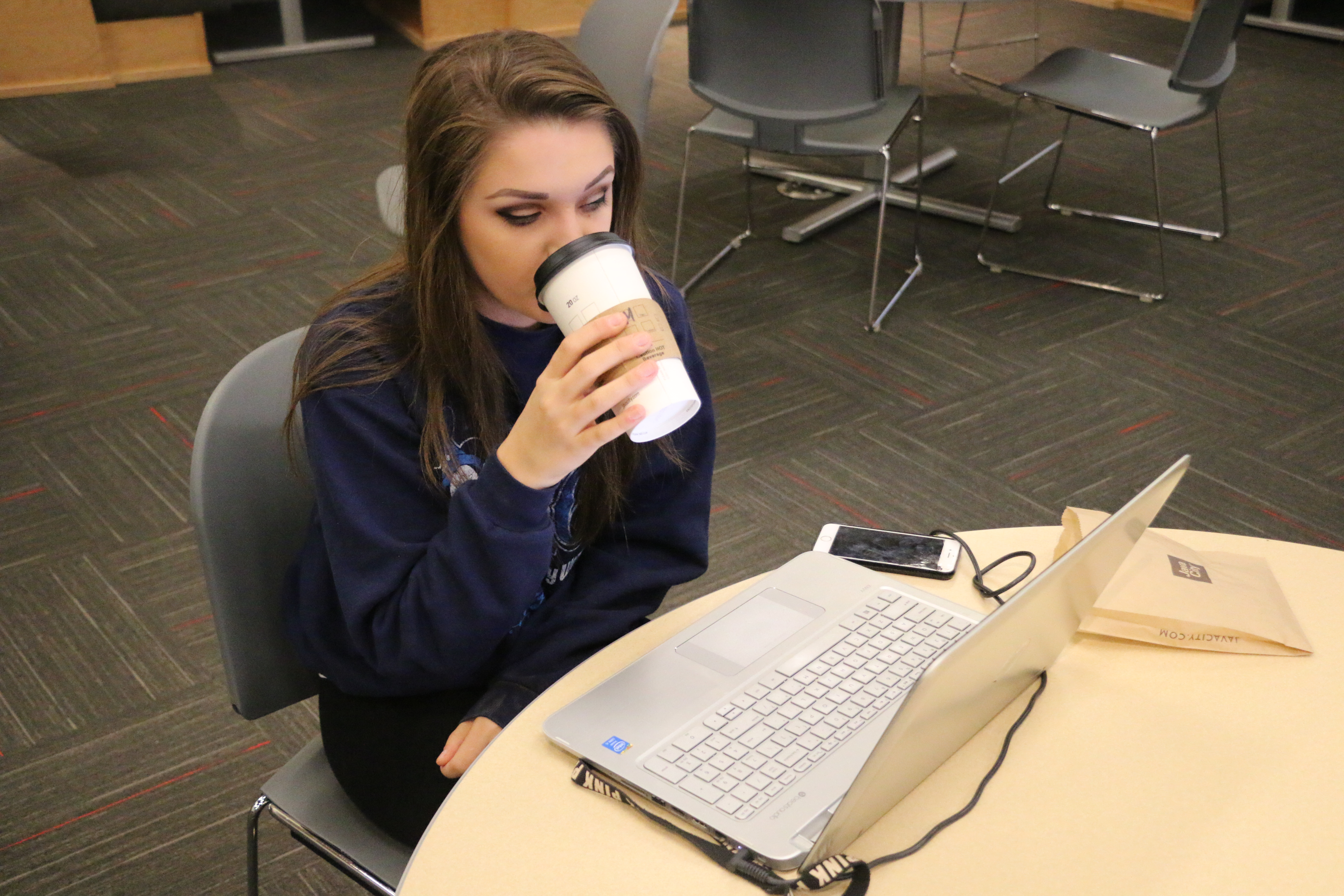
Caffeine intake for students too high, healthier options available
After staying up late to study and finish homework, students seek out the highly caffeinated beverage of coffee in order to get through the day. Relying on caffeine, however, is an unhealthy habit that could easily be replaced by other ways to gain energy.
There are many students on campus who get a cup of coffee at least once every day, such as Cora Ruzicka, a junior majoring in health sciences, who knows how bad coffee is for people’s health. This fact doesn’t stop her from drinking coffee though.
“I need coffee and caffeine to get me through the day,” she said. “My day would be much more of a struggle if I didn’t have my morning coffee. I would probably fall asleep in class or maybe not even not go to class if I didn’t.”
Relying on the psychoactive drug of caffeine within coffee to stay alert during class can lead to serious health problems. The Mayo Clinic states that drinking more than 500 mg of caffeine a day could cause headaches, insomnia, anxiety, caffeine dependence and possible abnormal heart rhythms.
To put that amount in perspective, that would be one 16 fl. oz. cup of regularly brewed coffee. Also, it’s possible someone doesn’t have to drink that much caffeine before they start feeling the negative side effects of too much caffeine. Some people are more sensitive to these effects and can be adversely affected by it at lower amounts.
Despite these possible health risks, students still drink a lot of coffee. Not only does it keep them awake throughout the day, but it’s easily accessible at on-campus and off-campus locations, like UBrew, Einstein’s Bagels and Latte Da. Plus the added bonus that a warm cup of coffee can taste really good on a cold morning before classes start.
Despite the perks of coffee, there are other ways to wake up in the morning without relying on coffee or any caffeinated drink in general. One way I wake up in the morning is simply by having an apple for breakfast. An apple is full of natural sugars and carbohydrates that helps me wake up, and if I have a very cold glass of water with it, I’ll feel even better.
Along with changing up what one drinks and eats in the morning, a student can change a few habits in their morning routine that will benefit their waking-up process. Such things as ending a shower with cold water or listening to some music while getting ready will have the same effects as caffeine, just in a faster and healthier way.
In the end, there are many ways to wake up in the morning that don’t involve coffee, energy drinks or even tea. It’s true that having these things in moderation can prevent health complications from arising while still maintaining the benefits of getting extra energy for the day, however, choosing alternatives to caffeine for staying alert throughout the day will only benefit your health in the long run.
